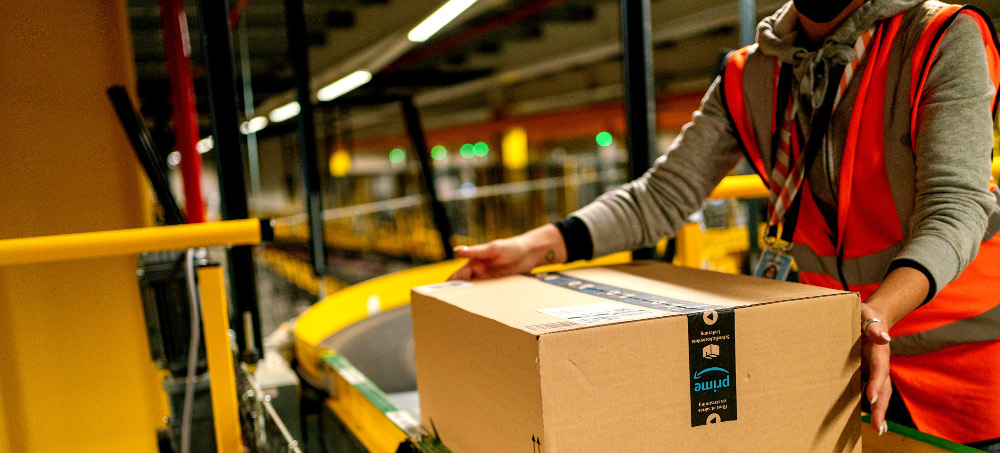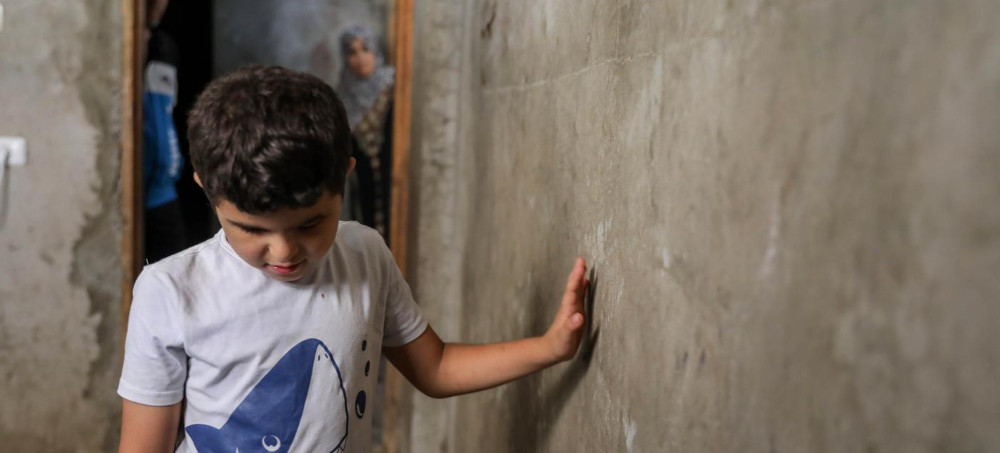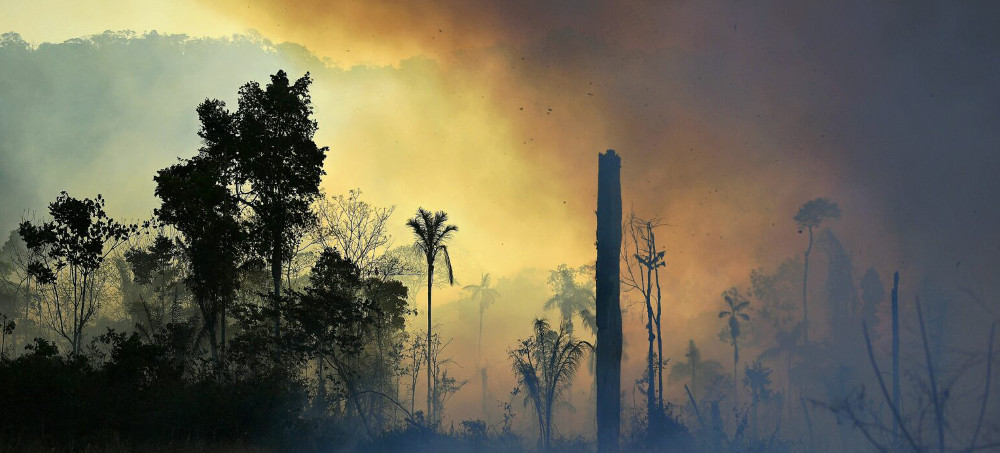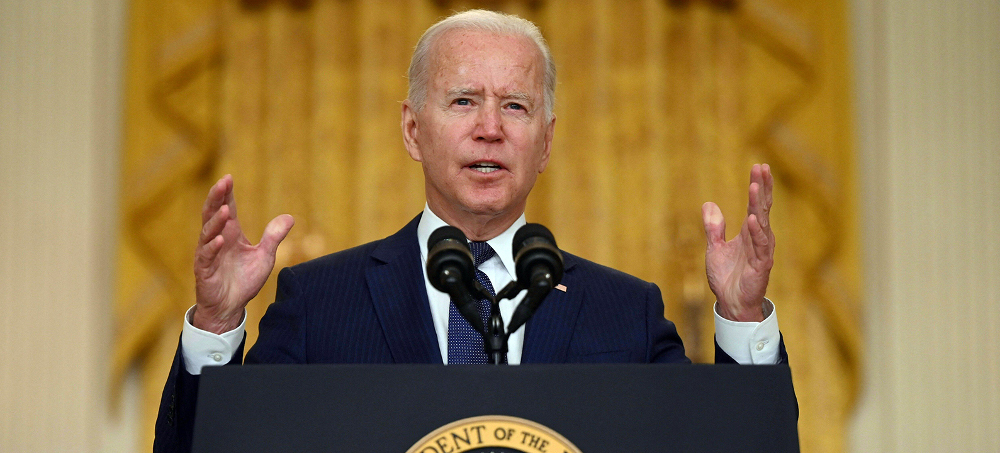Thanking the Sustainers Sincerely
Funding Reader Supported News through public donations, particularly in these times of widespread economic disruption, is a significant challenge.
In that context, the people who read Reader Supported News and believe in Reader Supported News actually sustain the publication and make the fulfillment of its mission possible.
It is impossible to overstate the positive impact that support has on what we do, how we do it, the benefits to the community we serve and beyond.
The sustainers are Reader Supported News.
Marc Ash
Founder, Reader Supported News
If you would prefer to send a check:
Reader Supported News
PO Box 2043 / Citrus Heights, CA 95611
Follow us on facebook and twitter!
Live on the homepage now!
Reader Supported News
Roughly half of that total — $2.3 trillion — went into Afghanistan. That total doesn’t include the priceless human cost of nearly 6,300 American lives lost, thousands more wounded, and the vast losses suffered by the Afghan people. Even as the foreign policy establishment savages Biden for ending a 20-year occupation in Afghanistan, one can only be outraged by the money and lives squandered on military adventures that have ended in disgraceful calamities.
Contrast that sum — and those lives — with the $3.5 trillion that Sen. Bernie Sanders (I-Vt.) correctly dubs the “most consequential piece of legislation” since President Franklin D. Roosevelt’s New Deal. It would begin to address the existential threat posed by climate change, reduce childhood poverty by half, expand public education from pre-K to free community college, extend health care through Medicare while making drugs more affordable, support families with help for day care, paid family leave and a child allowance and more. It is not enough — but it is a start.
“This is the people’s budget,” Sanders notes. “This is the budget that will impact tens of millions of lives in this country: the elderly, the children, the working families, the middle class.”
Trillions of dollars for debacles abroad versus trillions of dollars for investments at home. Yet, appropriations for the former zip through the Congress while the Biden domestic investments must overcome a filibuster by a unified Republican opposition and posturing by a handful of centrist Democrats demanding cuts.
This isn’t because lawmakers are concerned about deficits. If nothing else, Republicans and hawks agree with what President George W. Bush’s vice president, Richard B. Cheney, said Ronald Reagan had taught us: “deficits don’t matter.” In fact, with the U.S. economy operating far from full capacity, with millions still available to be added to the labor force, and interest rates holding steady, America can afford to do what it needs to do.
Republicans don’t worry about “paying for” the tax cuts they lavish on the rich and corporations. And hawks don’t worry about “paying for” the money squandered on foreign misadventures. Yet, to this day, Republicans denounce domestic investments as “socialism,” and even Democrats — from Biden to Sanders — accept that they must be paid for with offsetting revenue.
The result is plain to see: a wealthy nation that squanders trillions of dollars on failure and folly abroad while its citizens, its economy, its democracy and its security are undermined at home. We are the only advanced country without paid family leave, without affordable day care, without public education pre-K to college. We are lagging, not leading, in the transition to renewable energy. Publicly funded research, earmarked for defense firms, lavishes money on weaponry while investment in civilian technology and in research and development fails to keep up with rivals such as China.
After the debacle in Afghanistan, we need a broad reckoning, a fundamental reassessment of our priorities and our direction. The nation’s security demands it. As the war in Afghanistan ends, the pandemic is spiking once more at home — Europe now moves to ban American visitors because of our rising infection rates. Thanks to climate change, extreme weather — hurricanes, wildfires, floods, droughts — wreaks an increasing toll in lives and destruction. The imperative of addressing these threats to our security could not be more compelling
Already, leading figures in the foreign policy establishment — the architects of past disasters — have concocted a new argument: that Biden was wrong to pull the plug on Afghanistan, that the United States’ security and credibility would be better served by maintaining a small number of troops in that country, backed by drones and air power. The retired generals and intelligence bureaucrats use the chaos and casualties of our exit from Afghanistan to prove their point.
As Sen. Chris Murphy (D-Conn.) told New York Times columnist Ezra Klein: “The pro-war crowd sees this as a mechanism by which they can absolve themselves of an accounting for the last 20 years.”
But now, the failure of the armchair experts is impossible to miss. We need a new generation of security experts and activists — versed in pandemics and in poverty, in climate change and alternative energy, in political economy and diplomacy. We need a new consensus to advocate a strategy of restraint that focuses on diplomatic and economic engagement over military intervention. We must address the security threats we now face rather than continue the vain effort to police the world.
 Jackie Johnson campaigns for re-election as district attorney in November 2020. She blamed the controversy over Ahmaud Arbery's killing for her defeat. (photo: Terry Dickson/AP)
Jackie Johnson campaigns for re-election as district attorney in November 2020. She blamed the controversy over Ahmaud Arbery's killing for her defeat. (photo: Terry Dickson/AP)
 Rep. Alexandria Ocasio-Cortez. (photo: Getty)
Rep. Alexandria Ocasio-Cortez. (photo: Getty)
 A customer holds a new iPhone 12 Pro in San Francisco on Oct. 23, 2020. (photo: David Paul Morris/Bloomberg)
A customer holds a new iPhone 12 Pro in San Francisco on Oct. 23, 2020. (photo: David Paul Morris/Bloomberg)
 Amazon worker. (photo: iStock)
Amazon worker. (photo: iStock)
 Mohammed, eight, lost his eyesight in an air strike in May and his old school is now unable to accommodate his disability. (photo: Mohammed al-Hajjar/MEE)
Mohammed, eight, lost his eyesight in an air strike in May and his old school is now unable to accommodate his disability. (photo: Mohammed al-Hajjar/MEE)
Among the hundreds of Palestinian children injured in Israel's May campaign on Gaza, many now face a life without education and few prospects
The second-grader is with his classmates at a school in Beit Lahia, north of the Gaza Strip, but only temporarily. He lost his sight during Israel’s intense bombing campaign on the Gaza Strip, and now the school administration has refused to let him continue to study there as they can't accommodate his disability.
On that fateful day in May, Mohammed had just finished shopping for the holiday of Eid al-Fitr with his mother and cousin when a rocket landed in the marketplace and sent shrapnel flying, some hitting him in the face.
Three weeks later, he was transferred to a hospital in Egypt to receive treatment for the injury. The doctors told his father that Mohammed’s case was “hopeless”.
“One of his eyes had been destroyed by the shrapnel, so there is absolutely no hope in treating it,” his father, Hani Shaaban, told Middle East Eye (MEE).
“The other one was severely damaged, and the doctors told us that he would never be able to see with it again.”
Mohammed’s tragedy was far from unique. According to the United Nations human rights agency, OHCHR, 66 children and 40 women were among the 256 Palestinians killed during Israel’s 11-day attack on the blockaded land. Of the children killed, 51 were school-age students. Around 470 other children were injured in the attacks.
More than 50 educational facilities were damaged in the bombardment, including schools, kindergartens, and the Islamic University in central Gaza.
Furthermore, the Explosive Ordnance Disposal (EOD) team from the interior ministry in Gaza said it had located four unexploded Israeli bombs that remained buried in the ground under schools run by UNRWA - the UN agency for Palestinian refugees.
Living in an 'ugly nightmare'
Elsewhere in Beit Lahia, Mohammed al-Attar, a father of four, recounted the day when he enrolled his six-year-old daughter Amira in the first grade.
“The school principal asked her to count to 10 and to say the letters in Arabic. She did and they were impressed at how clever she was. They admitted her to school and she was super happy,” the father told MEE.
Amira couldn't wait to share the news with her mother as soon as they got home, and her older brother Islam, 8, had already begun planning their first day at school together.
“Islam told Amira that he would walk her to her school in the morning before going to his own school, and then in the afternoon, he would take her home with him.”
His daughter was most excited about shopping for school supplies, and she was adamant about the colour she wanted for her school bag - it had to be pink, Attar said.
He also praised Islam for being both a good brother and student.
“He had ranked first in his class and we were so happy. We kept encouraging him and wanted to buy him a present for his success.”
But the siblings never got to go to school together. "The bombing arrived much faster," said the father.
On 14 May, five Israeli strikes hit Attar’s neighbourhood without prior warning, completely destroying the building that housed six residential flats.
At the time of the attack, Attar’s wife and children were all sitting together at home, while he was with his brother in another room. His wife and three of his children were killed, while he sustained minor injuries.
Just two weeks after her school enrolment, Amira lost her life along with her mother Lamia, 27, and two brothers — Islam, and 5-month-old Zein.
“We had plans for the month when the kids would start school. But here I am, sitting alone with my only remaining child in my mother’s home," Attar told MEE. “Everything happened so quickly that I felt I was dreaming, I have no one now except one child who is only five.
“I honestly still haven’t figured out what to do, and all that had happened felt like an ugly nightmare. I cannot believe that I lost all four of them in a single day.”
Traumatised children
In a survey of 530 children from across the Gaza Strip, a Geneva-based human rights monitor found that nine out of 10 children surveyed had suffered from some form of conflict-related post-traumatic stress disorder (PTSD).
Following the attack, Mohammed, the young boy who lost his eye, changed and now he avoids social interactions with others and prefers to stay alone, his father told MEE.
“His mood changes every 15 minutes, sometimes he starts crying and screaming, and sometimes he finds something to enjoy, but most of the time he is introverted and doesn't talk to people outside of his family,” Shaaban said.
“Every morning, when his siblings get ready for school, he starts crying and asks to go with them, but he cannot go to his old school anymore.”
Shaaban said he talked with the school about letting his newly-blind son continue studying there.
“(The school administration) told us that he could no longer attend regular schools and that we needed to move him to a special school for the blind,” he said.
To appease the devastated boy, the school allowed Mohammed to sit among his classmates and encouraged him to participate in the lesson. "He felt better, but now he wants to go [to his old school] every day," said Shaaban.
Shaaban hasn't gathered up the courage to tell his math-loving son that he will never be able to read or study again.
“He asks me when he will be able to see again all the time and whether he will be able to walk in the street and go to school alone… He’s not a regular student anymore.”
 Smoke rises from an illegally lit fire in a section of Amazon rainforest, south of Novo Progresso in Para state, Brazil, on Aug. 15, 2020. (photo: Carl De Souza/Getty)
Smoke rises from an illegally lit fire in a section of Amazon rainforest, south of Novo Progresso in Para state, Brazil, on Aug. 15, 2020. (photo: Carl De Souza/Getty)
In a study published Wednesday in the journal Nature, a large collaboration of researchers from the United States and China found that up to 85 percent of species listed as threatened by the International Union for the Conservation of Nature have lost habitat because of fires and deforestation since 2001. Overall, fires have damaged the habitat of as many as two-thirds of the species in the Amazon basin.
“The Amazon ecosystem is not adapted to fires, but deforestation and fires have been and are still continuously impacting the Amazonia biodiversity,” said Xiao Feng, a geographer with Florida State University and one of the paper’s lead authors. “Literature suggests a tipping point that when the Amazon loses a certain portion of the forest, the whole ecosystem will transition to another type. If this happens, it will be a tragedy for the Amazon, and for the global ecosystem given the important role the Amazon plays.”
Feng and her colleagues looked at fire data collected from satellites and then mapped that data onto the ranges of thousands of species—a remarkable accomplishment, given the sheer numbers of plants and animals in the region. The Amazon is home to 10 percent of the planet’s known species.
“The Brazilian Amazon is absolutely massive. There are so many species it’s hard to model,” said Thomas Gillespie, a geography professor at the University of California, Los Angeles, who wrote a companion piece to the study, also published Wednesday.
Yet the study’s authors, Gillespie wrote, were able to “develop the most comprehensive collection of range maps available so far of Amazonian plant and vertebrate species.”
The authors of the study then go a step further by comparing the habitat damaged by fires and deforestation to environmental policies in place at the time. They found that, from the early 2000s to 2008, deforestation rates began to rise. But then rates began to slow from 2009 to 2018, when the government removed incentives to burn forest for soy and cattle, created more protected areas and began to better police environmental policies.
In 2019, shortly after Brazilian President Jair Bolsonaro took office, rates again began to rise. In Brazil, home to the largest swath of the Amazon basin, “policies that were initiated in the mid-2000s corresponded to reduced rates of burning,” the authors wrote. “However, relaxed enforcement of these policies in 2019 has seemingly begun to reverse this trend.”
Nearly 4,000 square miles of forest have been damaged since 2019, the authors noted, “leading to some of the most severe potential impacts on biodiversity since 2009.”
The study comes as the Bolsonaro administration and its allies in the Brazilian legislature push a handful of laws aimed at reducing protection for the Amazon and for Indigenous peoples. Last week, thousands of protesters from Indigenous and environmental advocacy groups marched in the streets of Brasilia, the country’s capital, demanding that Brazil’s Supreme Court uphold a land claim by the Xokleng people. Bolsonaro and the country’s powerful agricultural lobby have argued that Indigenous claims on land should be rejected if the Indigenous group did not inhabit that land prior to the 1988 enactment of the country’s constitution.
Under the Bolsonaro administration, mining, logging and industrial agriculture operations have been given carte blanche to make inroads into the Amazon. Incursions into Indigenous lands have risen since Bolsonaro was elected, largely on the promise of opening up the Amazon for business.
“There are many attempts to weaken the environmental policies and those related to the Indigenous peoples rights,” said Nurit Bensusan, a biologist with Socioambiental, a Brazilian environmental and Indigenous rights advocacy group. “Indigenous lands are about 23 percent of the Brazilian Amazon, and those are the most well-conserved areas. But since the beginning of Bolsonaro’s government, those lands have been invaded and destroyed.”
Evidence is mounting that much of that business is illegal. In another study, published last week, researchers from the Federal University of Minas Gerais (UFMG), in collaboration with Brazilian federal prosecutors, found that illegal gold mining is soaring and that it has caused the deforestation of nearly 52,000 acres of the Brazilian Amazon.
“There’s so much illegality in the gold supply chain,” said Raoni Rajão, an associate professor at UFMG and one of the report’s authors. “Bolsonaro was a wildcat miner, and he has this perception that wildcat miners are entrepreneurs and heroes.”
Bensusan said the Nature study’s findings were not surprising, given the rise in forest destruction under Bolsonaro.
“The article’s conclusions offer another proof that forest policy regulations are related to biodiversity conservation, because it is clearer each day that fire, deforestation, forest degradation and drought are destroying species and ecosystems,” she said. “Since Bolsonaro took office in 2019, the situation is getting worse.”
Follow us on facebook and twitter!
PO Box 2043 / Citrus Heights, CA 95611




No comments:
Post a Comment